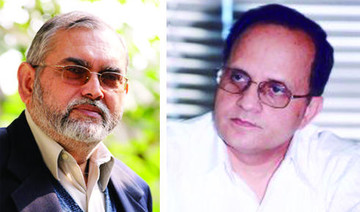UNITED NATIONS, United States: Cuts in international aid could bring an end to decades of progress in fighting child mortality, and even reverse the trend, the United Nations warned Monday.
Although the annual report from UNICEF, the World Health Organization and the World Bank does not single out the United States, it comes as President Donald Trump’s administration has axed the vast majority of the programs carried out by USAID, America’s main overseas aid agency with a former annual budget of $42.8 billion.
“The global health community cannot be worried enough at the situation that we are seeing,” Fouzia Shafique, UNICEF’s Associate Director of Health, told AFP.
The report warns the consequences of aid money cuts will be the worst in countries where infant mortality rates are already the highest, such as in sub-Saharan Africa and southern Asia.
“Simply put, if support for life-saving services is not sustained, many countries can expect a resurgence of newborn and child deaths,” the report said.
In 2023, mortality of children under age five continued to drop, with 4.8 million deaths recorded, including 2.3 million newborn babies under a month old, according to the report.
The number of such deaths fell below five million for the first time in 2022, and the new record low marks a 52 percent decline since 2000.
But Shafique insisted that “4.8 million is 4.8 million too many.”
Since 2015, progress in fighting child mortality has slowed as aid money was redirected toward fighting Covid — and this could be just the start of a dangerous pattern.
“Bringing preventable child deaths to a record low is a remarkable achievement. But without the right policy choices and adequate investment, we risk reversing these hard-earned gains,” UNICEF executive director Catherine Russell said in a statement.
“We cannot allow that to happen,” she added.
Some negative impacts of the funding cuts are being felt already, such as health care worker shortages, clinic closures, vaccination program disruptions, and a lack of essential supplies, such as malaria treatments.
Ethiopia, for instance, is enduring a big increase in malaria cases, said Shafique.
But the country is facing an acute shortage of diagnostic tests, insecticide-treated nets for beds and funding for spraying campaigns against disease-carrying mosquitos.
A separate report by the same organizations found a stubbornly high number of stillbirths — babies who die after 28 weeks of pregnancy, before or during childbirth — with a total of around 1.9 million such deaths in 2023.
“Every day, more than 5,000 women around the world endure the heartbreaking experience of stillbirth,” the second report states.
With proper care during pregnancy and childbirth, many of these deaths could be averted, as could the premature births of fragile babies.
And deaths of small children could also be largely avoided by fighting preventable diseases such as pneumonia and diarrhea.
“From tackling malaria to preventing stillbirths and ensuring evidence-based care for the tiniest babies, we can make a difference for millions of families,” said Dr. Tedros Adhanom Ghebreyesus, Director-General of the World Health Organization.



























